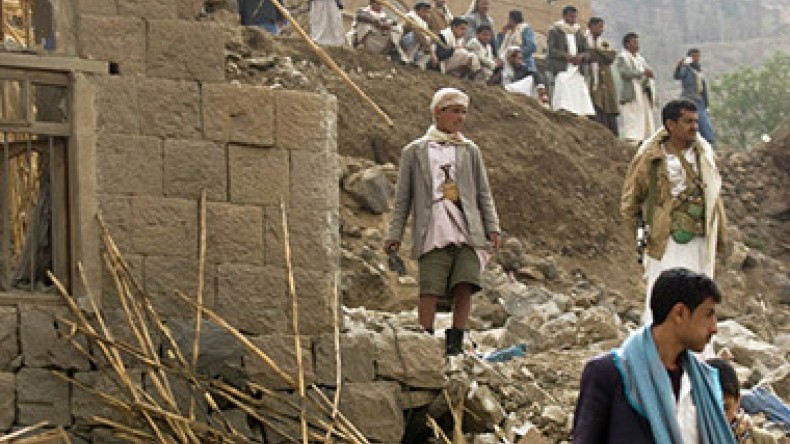
US, Saudis want to reinstall puppet regime of Hadi in Yemen – Cunningham
The massive bombardment of Yemen was launched by a US-backed Saudi coalition with tacit approval of the United Nations and the Arab League in order to reinstall the US-Saudi puppet regime of ousted president Abed Rabbo Mansour Hadi, noted Finian Cunningham, a UK expert in international affairs, according to Sputnik.
"Saudi Arabia, the US and other members of the bombing coalition claim that they are acting in response to requests from the "legitimate government of Yemen." But Hadi was kicked out because he reneged for three years on a promised transition to democracy, as demanded by the Yemeni population," the expert underscored.
While Saudi Arabia and its allies try to depict the conflict as purely sectarian strife between Shia Houthis and Sunnis, the situation on the ground indicates that the protests have brought together a "broad swathe of the Yemeni working class," increasingly frustrated with the non-democratic and repressive Hadi regime.
The protests culminated in seizing governmental institutions earlier this year prompting the discredited US-Saudi backed president to flee the country, the expert noted.
However, Saudi Arabia's King Salman has already proclaimed that airstrikes will continue "until it achieves its goal for the Yemeni people to enjoy security," sparking outrage among ordinary Yemenis who strongly oppose a foreign invasion.
Furthermore, Riyadh together with its American and Arab allies insists that the Shia Houthis are backed by Shia Iran, not providing any evidence to support its claim.
The Saudi-led airstrikes have already resulted in the deaths of 500 people, including at least 90 children, the expert pointed out.
At the same time the International Red Cross is openly blasting Saudi Arabia and its allies for hindering access to Yemen.
While backing Riyadh's aggression in Yemen, both London and Washington call upon "all sides" to start "political negotiations," turning a deaf ear to Moscow's proposal of a "humanitarian pause" in the aerial bombardment aimed at allowing aid agencies access.
"The Saudi-led bombing of Yemen, coordinated by Washington, is thus serving as a hammer to coerce the Yemenis towards the negotiation table. That table will then be the anvil upon which a terrorized population can be bent into political shape to suit American and Saudi objectives," Finian Cunningham underscored.
The United States and its Middle Eastern allies — Saudi Arabia and Israel — fear that a unified democratic Yemen could establish closer ties with Iran, their longstanding geopolitical rival in the region.
Thus far, the Yemeni population is now facing a painful dilemma, whether to protect democracy and independence or to accept the fate of a failed state under "Washington's dubious patronage."
Newsfeed
Videos






























